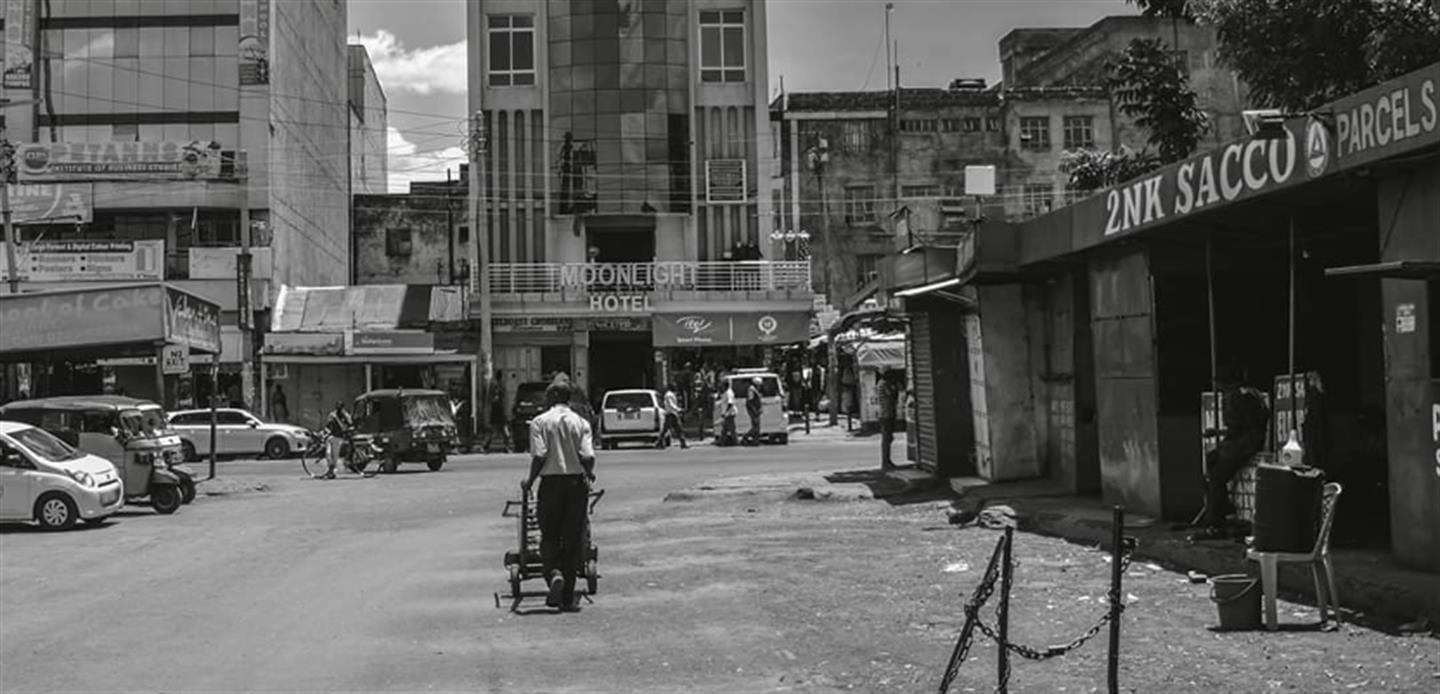
Njeri Njoroge on the lockdown in Kenya
Njeri Njoroge provides mental health care support to communities in Kenya. Since the corona outbreak, she observes that people are increasingly feeling anxious and that xenophobia is on the rise. At the same time, she sees reasons for optimism: ‘There is so much creativity and digital adaptation all over Africa. At the end of the day, human beings come together in the weirdest ways, that makes me hopeful.’
‘When I first heard about the virus in Europe, I felt for them, but I was personally feeling fine as it was not as close to us as earlier diseases have been, such as Ebola. But then it started spreading and began to dominate the news and social media. I became more anxious and concerned. I am wearing a mask and I try to practice social distancing as much as possible. Here, we say Ubuntu, “I am, because we are”.’
Police brutality and enforcement
‘In Kenya we are supposed to stay inside our houses from dusk to dawn. However, there remains a lot of activity and matatus, minivans, are still on the roads. The government instructed the police to make people comply to the curfew and this is creating problems, with episodes of police brutality. I believe it was worst in Mombasa where the police came in at rush hour and started beating people. It was terrible, I saw videos in which they kicked mothers and children with batons. Most people had not even heard about the measurements and did not understand why they were beaten.’
Information is essential
‘I work with communities and this threat shows the importance of communication and awareness. Containing measures come down to community behaviour and good practices of hygiene.’
‘There are jokes and rumours circulating. I am concerned by the xenophobic response and stigmas caused by this misinformation. In Nakuru, where I live, we had a case of a South African woman who was isolated and quarantined. She committed suicide under unclear circumstances. The woman was apparently stigmatized and attacked by people in the community. They were scared that she would pass on the virus. Unfortunately, I have heard more of such stories.’
‘People need to be more human and take care of each other. We can only defeat this virus if we fight it together.’
‘However, people don’t feel that the government is caring enough for them. The majority of people in the communities I work with, must go out to make a living. Their daily salary is not sufficient to plan and stock up. When you talk to them about social distancing and that they should use clean water and sanitizer products, it just doesn’t make sense to them, these are all privileges they cannot afford.’
Opportunity to fight inequality
‘Still, I also believe this crisis offers opportunities to raise awareness on mental health, since everybody is now experiencing distress and anxiousness.’
‘It doesn’t matter if you are rich or poor, the virus put us all at the same level. Everybody can catch it. This is about fighting inequality. We are all the same for the virus, although our options to fight it are different. This crisis is an opportunity for people to reflect on the social patterns and people’s privileges.’
‘Finally, there is so much creativity coming out of this. See what is happening in Nigeria and Kenya with the digital challenge to address covid-19 related problems and the digital adaptation and solutions that are rolling up all over Africa. At the end of the day, human beings come together in the weirdest ways, that is why I am hopeful.’
Njeri Njoroge is director of Beautiful Minds, a non-profit organization with a multidisciplinary approach to community mental health care for children and persons living with severe and enduring mental illnesses and intellectual disabilities. The organization counters stigmas and discrimination against children and persons living with mental illnesses. Beautiful Minds is also an active member of the Fight Inequality Alliance.
Photo: Empty streets of Nakuru, Kenya. Credits: Ben Omwaka




